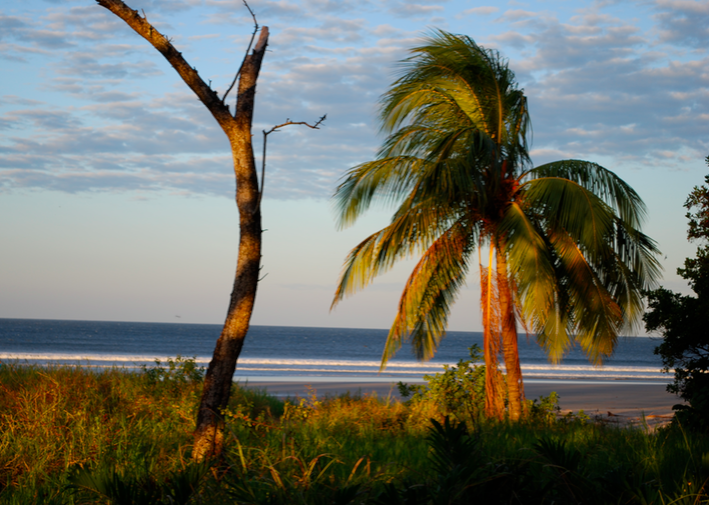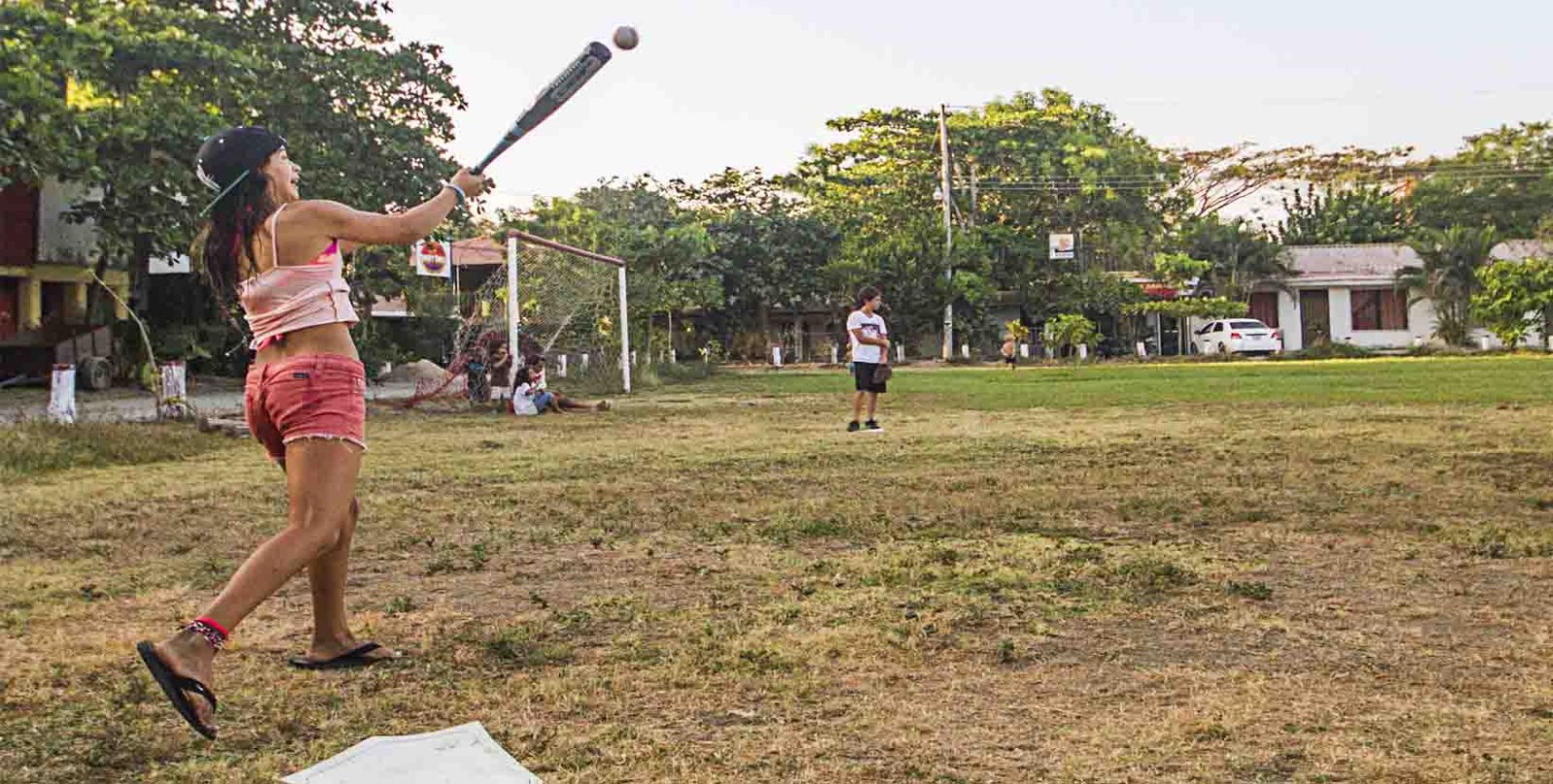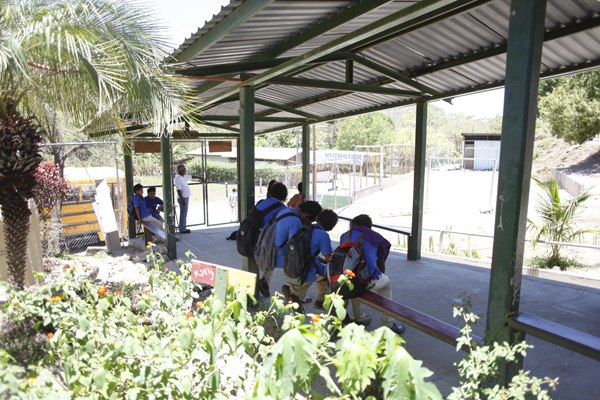
Arabs and Jews, blacks and whites, teens and seniors, anglos and Mexicans, ticos and Nicarauguans, cowboys and Indians. In Costa Rica we can all celebrate cultural harmony in a world focused on differences, not similarities. Where else does this blending of cultures come so easily? Certainly not the French with the British or Germans and Turks. Perhaps we fail to sufficiently appreciate the peaceful model that Costa Ricans show the world.
But, of course, problems do exist. For the beach communities of Nosara, our history differs from perhaps every other: We began as a residential community of expats and only very gradually added hospitality businesses. And unlike the others, Guiones and Pelada has primarily maintained its status as a place for a serious kind of fun; that is, a community where retirees, surfers, yogis, travelers with young children and others seek nature, with the loudest noise coming from the howlers, singing birds and croking frogs.
Nosara has won the hearts and patronage of up-scale North Americans within a very small, niche market. Since my wife and I first discovered Nosara in 2008, there has been very little growth, if at all, in hotel rooms, restaurants and bars. But in the next two or three years, Nosara will gain perhaps 100 new hotel rooms and 100 new houses (at even that rate of growth straining our infrastructure).
My advice to businesses seeking to get a foothold in Nosara is to 1) Do not expect to make money for the first year or two, and 2) Do not create a business that is not particularly well-suited and targeted to our niche market.
Let me give you an example from my experience in international destination development–my profession as a consultant for the past dozen years: In Sri Lanka after 9/11 in 2001 the charter flights from Europe stopped coming and the resort hotels were empty. Many lowered their prices to attract Sri Lankans to vacation or take a weekend get-away in their own country. The result was a disaster. The food that Europeans liked was entirely different than the firey hot Sinehala dishes. Europeans liked to swim with their children in the morning, the locals liked to play noisy water polo in the pool at midnight.
My point is that Nosara is not a mass tourism destination or, actually, a purely tourist economy. Construction in progress this June 2013 is mostly residential.
Most of the families that have invested in Nosara want to maintain its character and add amenities that attract our nuche market. So far, surfing, wellness and retirees have found a sweet spot to get along together.
But as Nosara grows, with more unsustainable development, noise, light pollution and petty crime will invariably require a higher standard of vigilance to maintain our vibe. Without it, we become just another place where the many who have come seeking a community off-the-beaten track and out of the mainstream will be disappointed. The character that our beach community enjoys has much-deserved reputation as a hidden jewel. A quiet-starlit night, a pristine beach and a community laced with greenways are beloved, insanely valuable and very rare.
The task ahead is to keep development slow, the scale appropriately modest and the culture attuned to the majority of our residents and the visitors who have passed the word to others.







Comments